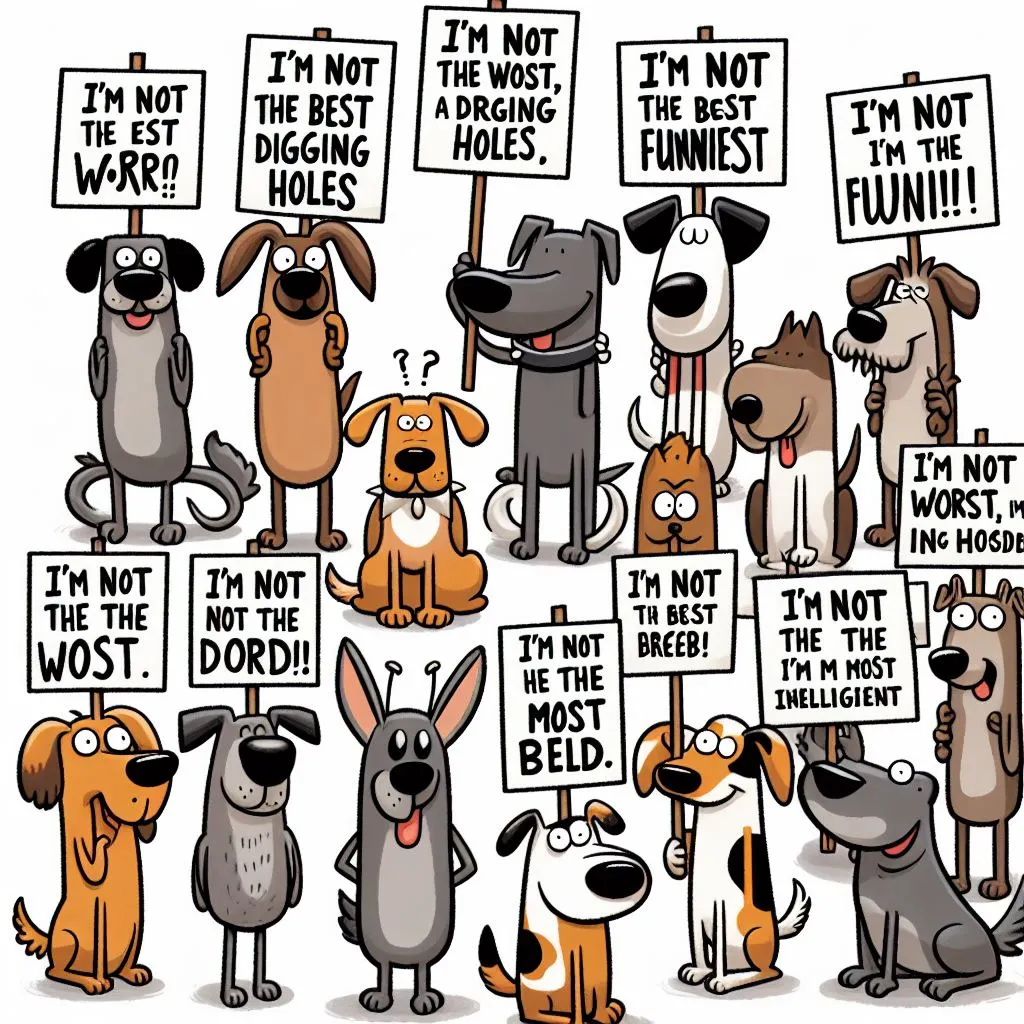Introduction:
Dogs, often referred to as man’s best friend, come in a variety of breeds, each with its own unique characteristics and quirks. While many breeds are cherished for their loyalty, intelligence, and companionship, others have garnered a less favorable reputation. In this article, we will delve into the 20 worst dog breeds, debunking common myths and misconceptions along the way. It’s essential to remember that every dog is an individual, and factors such as upbringing, training, and environment play significant roles in shaping their behavior.
20 Worst Dog Breeds
Chihuahua:
Often portrayed as yappy and aggressive, Chihuahuas have earned a reputation for being difficult to handle. However, with proper training and socialization, these pint-sized pups can be affectionate and loyal companions.
Perhaps one of the most misunderstood breeds, Pit Bulls often fall victim to stereotypes perpetuated by media sensationalism. In reality, they are loving and devoted family dogs when raised in a nurturing environment.
Rottweilers are often labeled as aggressive guard dogs, but with early socialization and training, they can be gentle giants. Responsible ownership is key to ensuring they grow up to be well-mannered companions.
Dachshund:
While Dachshunds may be prone to stubbornness, they are also renowned for their playful nature and affectionate demeanor. Proper training can help channel their independent spirit in positive ways.
With their stocky build and wrinkled faces, Bulldogs may appear intimidating to some. However, they are typically docile and loving towards their families, making them excellent companions for households of all sizes.
Shih Tzu:
Shih Tzus are often dismissed as high-maintenance due to their long, flowing coats. However, with regular grooming and attention, they make delightful pets known for their playful antics and affectionate nature.
Chow Chow:
Chow Chows are renowned for their aloof demeanor, leading some to believe they are unfriendly or standoffish. While they may be reserved with strangers, they form strong bonds with their families and can be incredibly loyal companions.
Jack Russell Terrier:
High energy and tenacious, Jack Russell Terriers require plenty of mental and physical stimulation to thrive. While their spirited nature can be challenging for novice owners, experienced handlers appreciate their intelligence and enthusiasm.
Akita:
Akitas are known for their loyalty and protective instincts, traits that make them excellent guard dogs. However, their strong-willed nature requires firm yet gentle guidance from their owners to ensure they remain well-behaved.
Shiba Inu:
Independent and intelligent, Shiba Inus march to the beat of their own drum. While they may be less eager to please than some breeds, their quirky personalities and playful antics make them beloved companions for those willing to earn their trust.
Siberian Husky:
Siberian Huskies are prized for their striking appearance and wolf-like features. However, their independent nature and penchant for escape artist antics can pose challenges for inexperienced owners.
Doberman Pinscher:
Dobermans are often stereotyped as aggressive guard dogs, but they are typically loyal and obedient companions when raised with love and consistency. Early socialization is crucial to prevent any potential behavioral issues.
Boxer:
Boxers are known for their boundless energy and clown-like behavior. While they may be exuberant at times, their affectionate nature and love for their families make them cherished pets in the right environment.
Great Dane:
Great Danes may be imposing in size, but they are often described as gentle giants. With proper training and socialization, they can coexist peacefully with children and other pets, proving to be loving and loyal companions.
Australian Shepherd:
Highly intelligent and energetic, Australian Shepherds excel in various canine sports and activities. However, their intelligence can sometimes translate into stubbornness, requiring patient and consistent training methods.
Bullmastiff:
Bullmastiffs are renowned for their protective instincts and unwavering loyalty to their families. While they may appear intimidating to strangers, they are typically gentle and affectionate towards their loved ones.
Saint Bernard:
Saint Bernards are beloved for their gentle and affectionate nature, but their massive size can be daunting to some. With proper training and socialization, they make excellent family pets, often forming strong bonds with children.
English Mastiff:
English Mastiffs are known for their dignified demeanor and gentle temperament. While they may require space due to their size, they are generally laid-back and affectionate companions.
Pekingese:
Pekingese may be small in stature, but they possess a bold and confident personality. While they may be reserved with strangers, they form deep bonds with their families and thrive on affection and attention.
Bloodhound:
Bloodhounds are celebrated for their incredible scent-tracking abilities, often employed in search and rescue missions. While their droopy ears and wrinkled faces may be endearing, they require patient training and a secure environment due to their curious nature.
Conclusion:
In conclusion, it’s essential to recognize that labeling a breed as the “worst” is inherently flawed, as individual temperament can vary widely within any given breed. While certain breeds may possess traits that require careful consideration and management, with the right approach to training, socialization, and responsible ownership, any dog has the potential to become a beloved family member. Rather than focusing on stereotypes and misconceptions, let us celebrate the unique qualities that each breed brings to our lives and advocate for the fair and compassionate treatment of all dogs.

